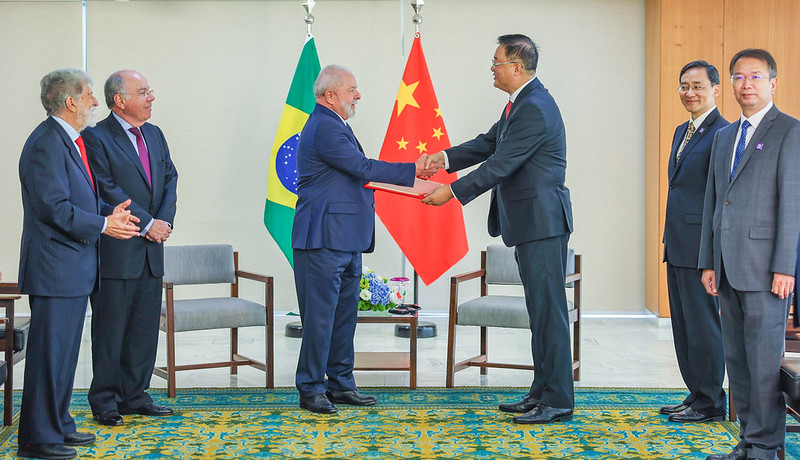The Politics Of Disaster Relief
After a 7.0 magnitude earthquake struck Haiti, the aftershock reached China in ways that few anticipated.The earthquake forced Chinese leaders to navigate the tricky politics of disaster relief.
On April 13, Asia and Latin America Program Director Margaret Myers joined BBC News to discuss Brazilian President Luiz Inácio Lula da Silva's trip to China.
“It’s an important trip for Lula in part because it is an effort to really reestablish a really strong bilateral partnership with China, which suffered somewhat under the previous Bolsonaro administration.”
“It’s also an important trip for Lula because Lula has been regarded for many years know, and certainly during his previous presidency, as one of the presidents in the Latin America region with the strongest overall personal ties to leadership in China.”
“In many ways, this is sort of a homecoming for Lula, and I think will be envisioned as such.”
“There is an interest in establishing a system of global economic governance that puts the interests of the Global South front and center. Lula and Xi and I think many others envision not just the BRICS but other platforms and other initiatives as a critical and effective means by which to achieve these objectives.”
“I think it was very interesting that Lula chose to visit the US and have this meeting with Biden first, and I think that does indicate the extent to which Brazil will be attempting to balance its important partnerships.”
“What Lula has emphasized previously and now is his interest in making Brazil a global actor.”
“It is absolutely part of this broader agenda, this effort to envision Brazil and ensure Brazil’s place as a critical global actor, not just in economic terms, but in this case an international arbiter of peace.”
“It’s hard to imagine what role Brazil could reasonably play and what sort of leverage it would have over either China and China’s alliance with Russia, or over Russia directly to effect any sort of decision making or viewpoints that would alter considerably the equation in that particular conflict.”
[video width="768" height="432" mp4="https://www.thedialogue.org/wp-content/uploads/2023/04/BBC_News_Channel-2023-04-14_03-16-11.mp4"][/video]
After a 7.0 magnitude earthquake struck Haiti, the aftershock reached China in ways that few anticipated.The earthquake forced Chinese leaders to navigate the tricky politics of disaster relief.
What should we expect from a newly powerful Brazil? Does the country have the capacity and leadership to be a central actor in addressing critical global and regional problems?
President Lula da Silva triumphantly announced that he and his Turkish counterpart had persuaded Iran to shift a major part of its uranium enrichment program overseas—an objective that had previously eluded the US and other world powers. Washington, however, was not applauding.
 Palácio do Planalto | CC BY 2.0
Palácio do Planalto | CC BY 2.0